-
Expansion and enlargement of FedEx and DHL cargo terminals
Preemptive support by Incheon International Airport Corporation, enhancing business efficiency through the expedited and secure expansion of terminal facilities
Following its record-breaking peak in 2021, Incheon International Airport maintained its rank as the world’s second-largest in cargo volume in 2022 Such success is underpinned by Incheon International Airport Corporation’s consistent efforts, including investments in logistics infrastructure such as the Airport Logistics Complex and cargo terminals, and attraction of enterprises with high cargo throughput capabilities. As leading air cargo companies that have maintained a long-standing partnership since the opening of Incheon International Airport, FedEx and DHL have expanded their dedicated cargo terminal facilities with the proactive support of Incheon International Airport Corporation.
FedEx completes its unique, efficiency-enhanced business through the Build To Suit (BTS) initiative by Incheon International Airport Corporation.
FedEx, one of the world’s top three air cargo companies, has been operating within the Incheon International Airport Free Trade Area. Having expanded its dedicated cargo terminal in October 2022, it is now capable of handling over 170,000 tons of air cargo annually. The newly expanded cargo terminal is equipped with an upgraded cargo automation sorting system, now capable of processing 12,000 items per hour or more than double its previous capacity. In particular, FedEx’s expanded dedicated cargo terminal was developed as part of the Logistics Group of Incheon International Airport’s customer-tailored development project (Build To Suit), incorporating the majority of FedEx’s specific requirements from the design phase to create an optimized facility. Solar panels were installed on the rooftop, acquiring certification as an eco-friendly building from Europe’s G-SEED, with the strategic location adjacent to the apron planned to accommodate the stringent needs of global enterprises; thus culminating in a unique structure that maximizes business efficiency for FedEx.
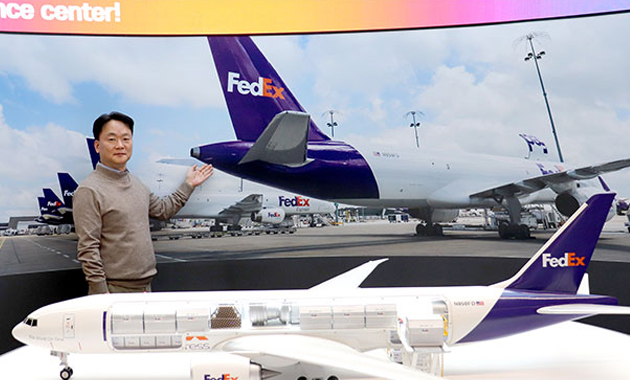
During the design of the new building, we made numerous requests to ensure that it would be tailored to FedEx’s current business efficiency needs—all of which were fully accommodated by Incheon International Airport Corporation—and their comprehensive fulfillment of our varied demands throughout the handover process of the building left us highly satisfied with our collaboration with Incheon International Airport Corporation.
Kim Jongyoon, Director of FedEx Air Operations and Package Handling
Fully Supporting the Expansion of DHL’s New Terminal, which Enhanced Accessibility and Locational Advantages
As another key player in managing the cargo volume within Incheon International Airport, DHL has also undergone a complete overhaul through the horizontal expansion of its terminal facilities. The first phase of the expansion, which commenced construction in 2020, was completed last year, leading to the operation of the new terminal since December 2022 with the second phase of construction expected to be finished in the latter half of 2023. Now covering 66,116㎡, DHL’s newly expanded terminal has tripled its area and increased its processing capacity by 2.5 times compared to the existing facilities, equipped with state-of-the-art logistics technologies such as automatic X-ray inspection devices, 4-kilometer conveyor belt, and automated cargo sorting systems; thus enabling much faster and safer handling of import and export goods. Notably, with the expansion of loading and unloading space, the number of docking positions has also increased by 2.5 times,—allowing the terminal to handle 20,000 units of cargo per hour—thereby enhancing productivity and efficiency while accommodating the growing transshipment cargo volume at Incheon International Airport as well to drive both quantitative and qualitative growth.
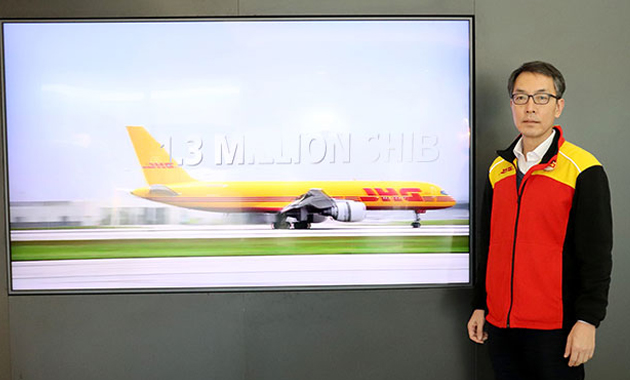
For air cargo companies, aircraft accessibility is paramount; the newly expanded terminal, designed to meet such locational requirements fully, greatly benefited from the proactive support of Incheon International Airport Corporation, which significantly facilitated the acquisition of the necessary business permits and approvals. We are profoundly grateful for this support.
Ho Seungchan, Branch Manager, DHL Airport Operations Team
Incheon International Airport’s role as a key hub in the Northeast Asian logistics market is expected to become increasingly significant in the future. The timely expansions of FedEx and DHL—driven by Incheon International Airport’s early investments and support, which meet locational requirements aimed at ensuring the success and operational efficiency of global partners—signal a bright future in achieving the airport’s goal of becoming the world’s leading cargo volume hub.
-
Re-certification of CEIV Pharma by Incheon International Airport Corporation, Korean Air, Asiana Airlines, and Schenker
Through the preemptive and practical efforts of Incheon International Airport Corporation—including the initiative in community recruitment and operation, financial support for training, and provision of venues—the airport successfully acquired IATA CEIV Pharma, CEIV Fresh, and CEIV Lithium Batteries certifications, which promise rigorous quality standards.
Recently, the demand for high-value growth air cargo including cold chain and biopharmaceuticals has been steadily increasing, with Incheon International Airport’s fresh cargo handling volume growing at an annual average rate of 11% over the past five years. Furthermore, the explosive demand in the electric vehicle industry has led to rapid growth in trade related to lithium batteries. To respond swiftly to these logistics trends, Incheon International Airport Corporation has forged close partnerships with its partners concerning certifications for pharmaceuticals, fresh cargo, and lithium batteries, ultimately making Incheon International Airport the first airport in the world to acquire IATA’s international standard certifications in all three categories: CEIV Pharma, CEIV Fresh, and CEIV Lithium Batteries. The stringent management and certification systems of the International Air Transport Association (IATA) for air transport include CEIV Pharma introduced in 2017, CEIV Fresh introduced in 2019, and CEIV Lithium Batteries introduced in 2021. As each of these sectors is required to guarantee stable transportation quality, the need for highly specialized expertise is absolutely imperative.
The Incheon International Airport Community (consisting of Incheon International Airport Corporation, Korean Air, Asiana Airlines, and Schenker) acquired CEIV Pharma certification (2019) and successfully achieved recertification (2022).
In 2019, Incheon International Airport Corporation—in collaboration with Korean Air, Asiana Airlines, and Schenker—formed a community and acquired the IATA CEIV Pharma certification. Following the rigorous verification process required for recertification every three years, the community successfully secured recertification in September 2022. Since first acquiring the CEIV Pharma certification in June 2019, the pharmaceutical cargo handling capacity at Incheon International Airport has consistently recorded growth. Over the past three years, the airport has achieved an annual average growth rate of 11.2% in volume (approximately 30,000 tons → 42,000 tons) and 7.3% in value ($14 billion → $17.3 billion).
Fully supporting the expansion of DHL’s new terminal, which enhanced accessibility and locational advantages
As another key player in managing the cargo volume within Incheon International Airport, DHL has also undergone a complete overhaul through the horizontal expansion of its terminal facilities. The first phase of the expansion, which commenced construction in 2020, was completed last year, leading to the operation of the new terminal since December 2022 with the second phase of construction expected to be finished in the latter half of 2023. Now covering 66,116㎡, DHL’s newly expanded terminal has tripled its area and increased its processing capacity by 2.5 times compared to the existing facilities, equipped with state-of-the-art logistics technologies such as automatic X-ray inspection devices, 4-kilometer conveyor belt, and automated cargo sorting systems; thus enabling much faster and safer handling of import and export goods. Notably, with the expansion of loading and unloading space, the number of docking positions has also increased by 2.5 times,—allowing the terminal to handle 20,000 units of cargo per hour—thereby enhancing productivity and efficiency while accommodating the growing transshipment cargo volume at Incheon International Airport, as well to drive both quantitative and qualitative growth.
Pharmaceutical cargo handling scale at Incheon Airport2019- 30,000 tons
- 14 billion dollars
2022- 42,000 tons
- 17.3 billion dollars
-
Incheon International Airport Corporation, Asiana Airlines, LX Pantos, and Seoul Air Cargo have acquired CEIV Fresh certification
The Incheon International Airport Community (consisting of Incheon International Airport Corporation, Asiana Airlines, LX Pantos, and Seoul Air Cargo Co., Ltd.) successfully acquired the CEIV Fresh certification in 2022.
In November 2022, the Incheon International Airport Community consisting of Asiana Airlines, LX Pantos, and Seoul Air Cargo Co., Ltd., successfully acquired certification from the International Air Transport Association (IATA) for the IATA CEIV Fresh quality management system for perishable goods. As the trend in air cargo shifts towards a greater proportion of high-value goods, preparations for the CEIV Fresh certification were undertaken to respond swiftly to this evolving demand. Incheon International Airport Corporation, in its pursuit of IATA CEIV Fresh certification, established a community encompassing three partner companies—Asiana Airlines, LX Pantos, and Seoul Air Cargo—and underwent a preparatory phase of approximately one year, which culminated in the successful acquisition of CEIV Fresh certification by all parties involved.
Early formation of the community by Incheon International Airport Corporation for IATA certification, along with multifaceted support ranging from educational expenses to scheduling management
In its efforts to acquire the rigorous IATA certification, Incheon International Airport Corporation not only proactively identified and persuaded partner companies but also took charge of forming the community, coordinating overall roles such as scheduling meetings between partners and IATA. In particular, the corporation provided training venues for IATA certification and fully covered the educational expenses for each company; thus easing the financial burden. Through the financial support for educational costs provided by Incheon International Airport Corporation, each company was able to train a minimum of two employees, with some training up to four to five employees considering the potential turnover and relocations. Upon receiving CEIV Fresh certification, Asiana Airlines became the first domestic airline to acquire both perishable goods (CEIV Fresh) and pharmaceutical (CEIV Pharma) air transport certifications, transporting approximately 85,000 tons of pharmaceuticals globally since 2019 and taking a leading role in the safe transport of COVID-19 vaccines as the first Korean carrier to do so during the pandemic.
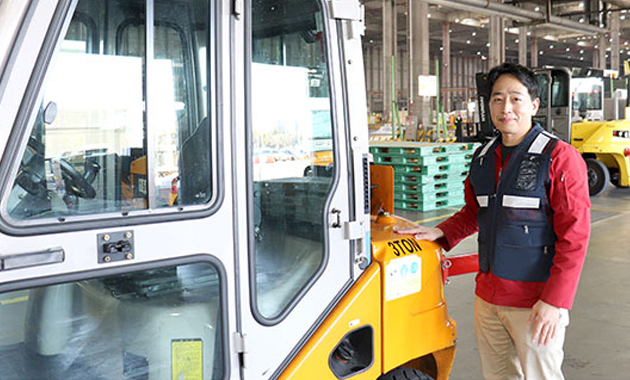
For the CEIV Fresh certification, Incheon International Airport Corporation provided comprehensive support, sparing no effort in offering training venues, covering educational costs, and coordinating meeting schedules with IATA. The financial support provided was particularly helpful, significantly easing the burden.
Park Min, Manager at Asiana Airlines
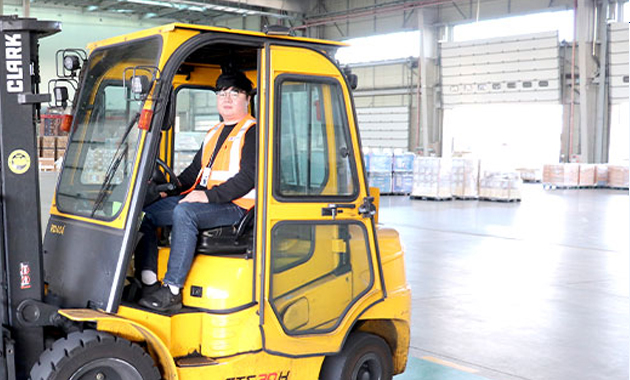
Although the scale may not have been large, the certification process required careful preparation, involving the verification of over 300 items, including critical refrigeration equipment, monitoring systems, and process manuals. Each of these elements had to be documented thoroughly and demonstrated to IATA representatives during the inspection. We are profoundly grateful for the extensive support and assistance provided by Incheon International Airport Corporation throughout this rigorous evaluation.
Lee Ki-ho, Manager of Incheon International Airport Center at LX Pantos

We have established a refrigerated warehouse spanning 300 pyeong and a freezer warehouse of approximately 120 pyeong; to meet the growing demand for perishable goods, we were able to acquire CEIV Fresh certification with the proactive support of Incheon International Airport Corporation. Given the stringent nature of IATA’s certification process, which requires the highest levels of expertise, it would have been challenging to prepare independently without the invaluable assistance of Incheon International Airport Corporation.
Won Yoon-jae, Managing Director at Seoul Air Cargo
Having successfully acquired the perishable goods certification last year, Seoul Air Cargo inaugurated its logistics center within the Incheon International Airport logistics complex in November 2019. Following the achievement of an annual air cargo volume of 20,000 tons in 2013, it continued to demonstrate consistent growth by recording 30,000 tons in annual air export volume in 2015 and 40,000 tons in annual air cargo volume in both 2016 and 2017.
-
The World’s First Airport to Attain Certifications Across Three Domains: Pharmaceuticals, Perishables, and Lithium Batteries
In May 2023, Incheon International Airport Corporation, alongside 11 other companies, successfully acquired the CEIV Lithium Batteries certification. The Incheon International Airport Community was established, with the Corporation taking the lead in facilitating the attainment of joint certifications.
To receive certification for the transportation of lithium batteries, it is imperative to adhere to the 10 global safety standards outlined by IATA covering manufacturing tests, packaging, labeling, documentation, and other critical aspects (such as transport procedures, facilities, equipment, and regulations). Leveraging the expertise gained through the certification processes for pharmaceuticals and perishables, Incheon International Airport Corporation once again spearheaded the formation of a joint certification community in December 2022, collaborating with 10 major airlines, forwarders, and ground handling companies to prepare for the CEIV Lithium Batteries certification. Following approximately five months of rigorous training and evaluation, all participating companies successfully secured certification for lithium batteries in May 2023. Incheon International Airport Corporation became the first in the world to secure three CEIV certifications through a collaborative certification process under the leadership of the airport operator.
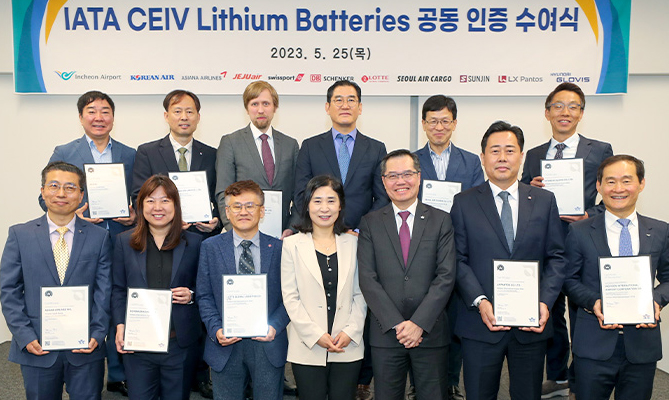
Certified CEIV Lithium Batteries Companies
- Corporation

- Airline



- Ground Handler

- Logistics Company






With the distinction of being the first airport in the world to acquire certifications in three key domains—IATA CEIV Pharma, CEIV Fresh, and CEIV Lithium Batteries—Incheon International Airport Corporation has solidified its expertise in air transportation.
By securing CEIV certification for lithium batteries in addition to pharmaceuticals and perishables, Incheon International Airport has become the world’s first airport to be recognized internationally for air transportation stability across three critical domains. Following the acquisition of IATA CEIV Pharma certification and its subsequent renewal as well as the CEIV Fresh certification and now the CEIV Lithium Batteries certification, Incheon International Airport Corporation intends to explore collaborative strategies proactively with community partner companies to attract both domestic and international pharmaceuticals and perishables, and to bolster the lithium battery industry. The Corporation will continue to provide unwavering support and investment in logistics infrastructure, thereby strengthening its position as the preeminent cargo hub airport in Northeast Asia.
- Corporation
-
Jeju Air Cargo Route
Incheon International Airport Corporation’s incentives, event support, and slot coordination have successfully driven the operation of Jeju Air’s cargo route, establishing a win-win partnership.
In 2022, Jeju Air became the first in the LCC industry to commence operations with a dedicated cargo aircraft. Starting with the inaugural route between Incheon and Hanoi, Jeju Air is currently operating 15 flights across three routes—Yantai in China's Shandong, Tokyo, and Hanoi—achieving total cargo volume of 11,200 tons, with 8,700 tons transported by the dedicated freighter. As the freighter of Jeju Air, the B737-800BCF (Boeing Converted Freighter) is the same model as its currently operated passenger aircraft. By using the same aircraft type for both passenger and cargo operations, the airline has been able to reduce costs and enhance efficiency. The decision of Jeju Air to venture into the cargo business—marking the first of such move in the domestic LCC industry—was driven by a strategic aim to expand its external reach and diversify its business operations. This decision was significantly influenced by the drastic revenue decline and deteriorating profitability resulting from the inability to operate passenger flights during the 2020 COVID-19 pandemic. The expectations of a sustained increase in air cargo demand also played a crucial role in the decision to introduce a dedicated freighter. Currently, Jeju Air primarily handles express delivery and e-commerce shipments including electronic components such as automotive parts and mobile phones, as well as goods for Japan’s iHerb. In addition, Jeju Air is sensitively responding to issues related to lithium batteries—having completed certification training for lithium battery transportation—and is currently planning to expand its cargo volume.
The Secret Behind the Success of Jeju Air’s Cargo Route
The unexpected success of Jeju Air’s cargo route can be attributed to the unwavering support provided by Incheon International Airport Corporation. Incheon International Airport Corporation provided comprehensive support for all events from the inauguration ceremony to the launch of the cargo route, and dedicated considerable effort to ensuring the stable supply of slots that are critical to the operation of cargo aircraft.
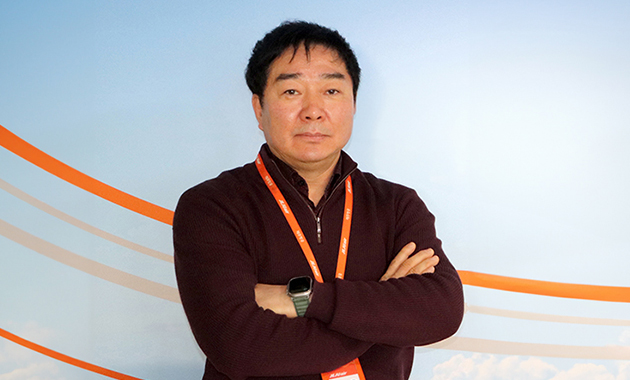
During the launch of Jeju Air’s cargo route, Incheon International Airport Corporation actively collaborated in the preparation of the inauguration and launch ceremonies; thus ensuring the success of these events. A critical factor for success was the stable supply of slots—which are essential when operating cargo aircraft—as each route and country of operation have unique requirements. The smooth coordination of slots by Incheon International Airport Corporation was instrumental in achieving this success. The introduction of the dedicated freighter resulted in an impressive performance of 12,000 tons and also generated a synergistic effect on passenger routes. Currently, newly contracted agencies and cargo volumes are being developed steadily. Moving forward, Jeju Air and Incheon International Airport Corporation will continue to maintain a win-win relationship based on the Corporation’s support and mutual trust.
Park Ji-heon, Director of the Cargo Sales Team, Jeju Air Cargo Business Division
Win-Win Project of Jeju Air and Incheon International Airport Corporation
On May 31 and June 1, Incheon International Airport Corporation and Jeju Air jointly held a briefing session for local forwarders in Hanoi, Vietnam, aimed at increasing cargo volumes. The briefing session was attended by a total of 61 local forwarders and logistics companies in Vietnam. This event was held as part of a joint marketing initiative—utilizing the "cargo incentive" funds provided by Incheon International Airport Corporation to airlines—and was organized in collaboration with Jeju Air to hold a joint briefing for local logistics companies in Vietnam. Incheon International Airport Corporation took this opportunity to promote actively the airport’s superior logistics infrastructure and competitive cargo network to the attendees. As part of its joint marketing efforts with Incheon International Airport Corporation, Jeju Air expressed hope for continued engagement in multifaceted projects that would yield mutually beneficial outcomes in the future.
- Telephone : +082-32-741-2277
- Email : cargo@biz.airport.kr
- Managing department : Cargo Marketing Team

